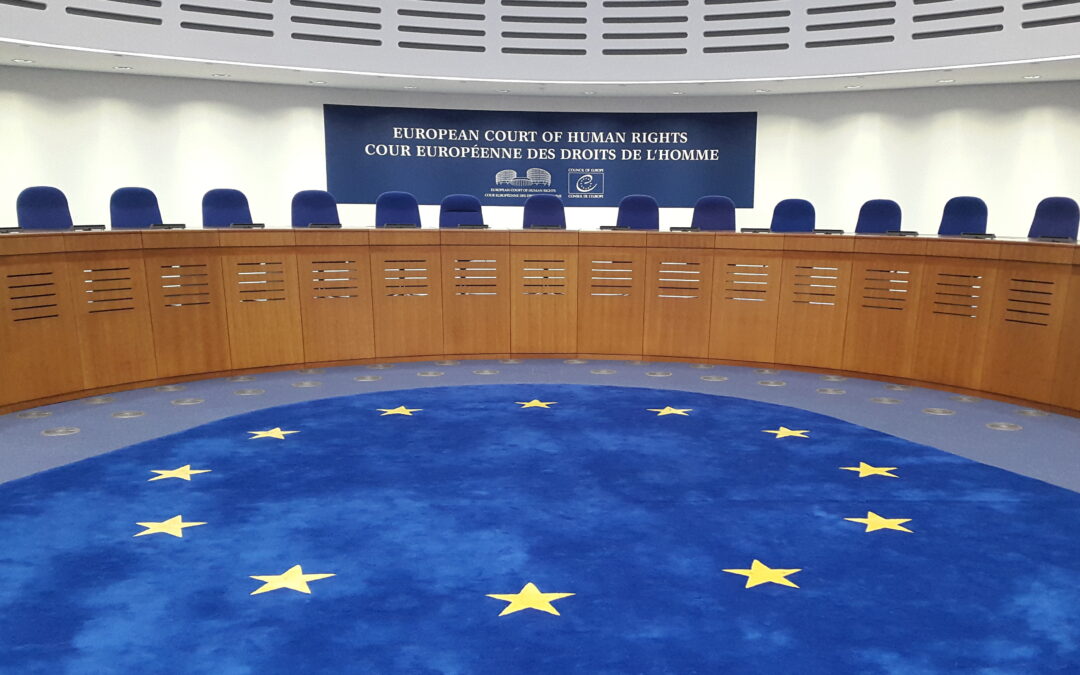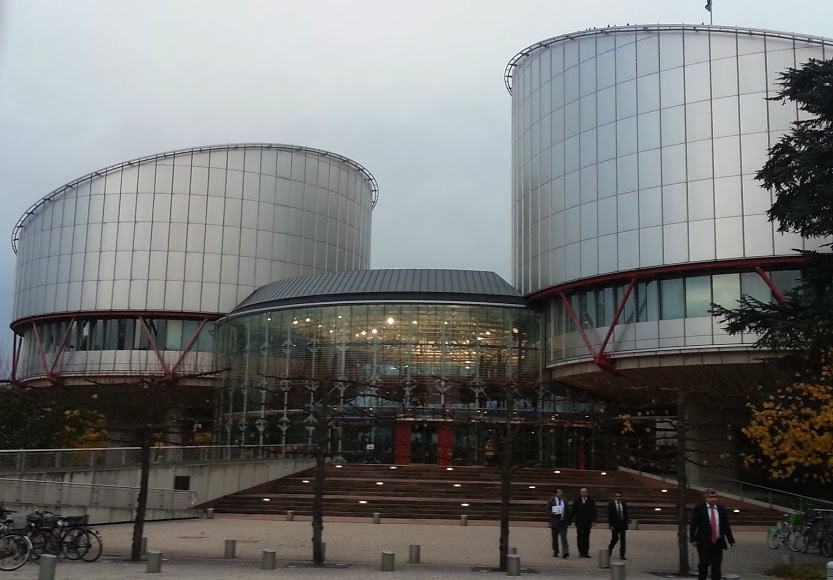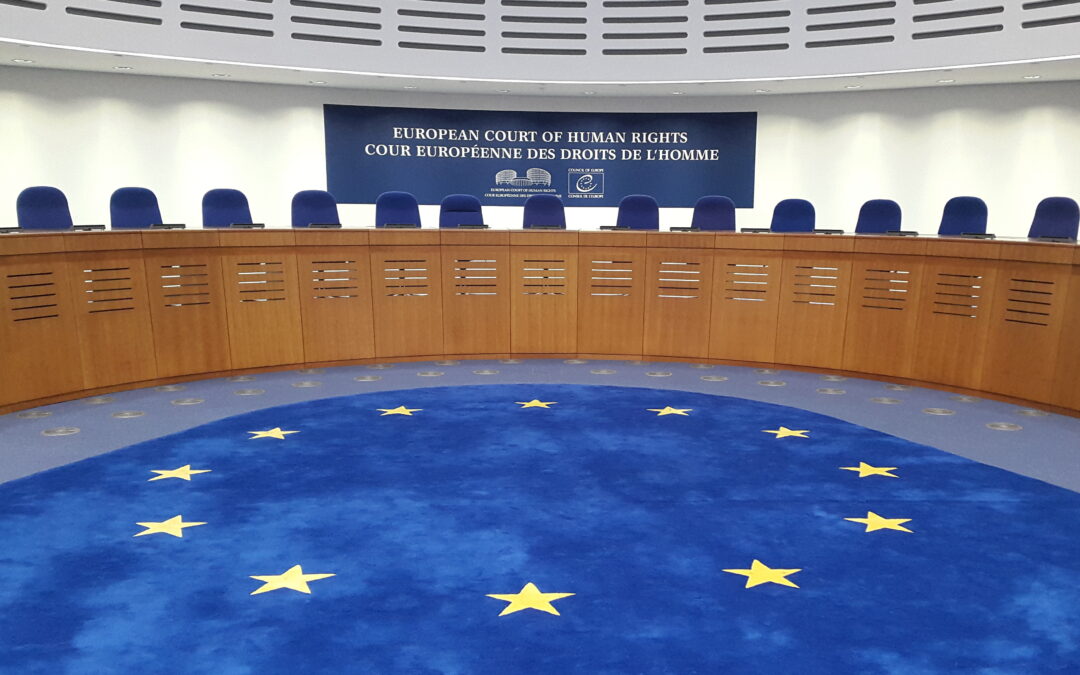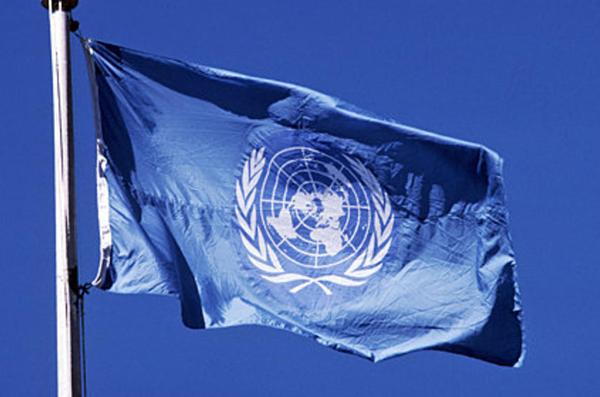
Apr 28, 2017
The statement was delivered by the ICJ at the Half-Day of General Discussion on the Elaboration of a Revised General Comment on Article 3, the Refoulement Prohibition, of the UN Convention Against Torture and Other Cruel, Inhuman or Degrading Treatment or Punishment.
Universal-CAT-General Discussion-Advocacy-Legal Submission-2017-ENG (full text in PDF)

Apr 12, 2017
On 6 April, the ICJ, ECRE, the AIRE Centre and the Dutch Council for Refugees have submitted a third party intervention in the case of H. A. and Others v. Greece, which relates to the detention of nine unaccompanied minors (aged between 15 and 18), from Syria, Iraq and Morocco in Greek police stations.
The organisations argue that:
- A comprehensive assessment of the best interests of the child will presumptively exclude any resort to detention for children, when the detaining measures are being contemplated not in the context of furthering the child’s best interests but in the context of immigration control.
- The administrative detention of migrant children for immigration control purposes cannot fall within the scope of permissible detention under Article 5(1)(d) ECHR, which is intrinsically linked with the child’s educational supervision and protection needs.
- Before any administrative measure is taken concerning unaccompanied children, the State must appoint a guardian and provide the unaccompanied children with access to appropriate information in a language they understand.
- If the State fails to appoint a competent guardian for an unaccompanied child and/ or access to information is not adequately guaranteed, the State has failed to meet the procedural safeguards designed to assess, and determine the child’s best interests.
- Under EU law, EU Member States are obliged to provide conditions, procedures and information to children in order for them to have effective access to their rights under the Charter of Fundamental Rights of the EU.
Greece-HA_v_Greece-ECtHR-amicus-ICJ&others-final-eng-2017 (download the third party intervention)

Apr 6, 2017
The ICJ has intervened before the European Court of Human Rights in a case of alleged abduction of a Tajik national and transfer to his country of origin where he could be at risk of torture or ill-treatment.
The International Commission of Jurists (ICJ) intervened in the case of K.F. v. Russia. K.F. had been subject to a procedure of extradition to Tajikistan to answer for terrorism-related offences there. The procedure was stalled by the interim measures issued by the European Court of Human Rights in the case. On the day of his release, for the expiry of the maximum term for detention, he disappeared. The family informed his lawyer that he was being held in a remand prison in Tajikistan.
In this submission, the ICJ provided the Court with an analysis, based on international law sources, of the positive obligations of States parties to the European Convention to ensure that no transfer is carried out of persons subject to interim measures enjoining such transfer by the European Court. The submission includes a comparative analysis of the law, jurisprudence and practice of other regional human rights systems. The ICJ also assessed the capacity of the Russian legal system to protect against transfers in violation of the Convention rights and, in particular, of the interim measures of the Court.
The ICJ concluded that the Russian authorities have not yet provided an effective protection programme that would ensure the respect of the interim measures of the European Court in cases of alleged abductions. Furthermore, the ICJ pointed out that the lack of any effective investigations and public condemnation of practices of abduction is detrimental to the effective implementation of the Court’s interim measures.
The ICJ submitted that this continued lack of compliance by Russian authorities with the rulings of the European Court affects the whole system of compliance with interim measures. The recurrence of this situation, therefore, requires the formulation of specific measures to enhance systemic changes in Russian law and practice.
Russianfederation-KF_v_Russia-ECtHR-amicus-ICJ-final-eng-2017 (download the third party intervention)

Mar 31, 2017
The ICJ and Amnesty International intervened before the European Court of Human Rights to promote access to justice in Switzerland for a victim of torture at the hands of the former Tunisian Government.
Abdennacer Naït-Liman, a Tunisian national, claims to have been tortured at the hands of officers of the former Tunisian regime. Years after having obtained refugee status in Switzerland, he sought criminal prosecution of one of the perpetrators when this last arrived to Geneva for medical treatment. While his arrest and the consequent criminal prosecution had not been possible, Mr Naït-Liman has sought to introduce a civil action for damages for the violation of his human rights. Swiss courts have dismissed this action on jurisdictional ground and he challenged this situation before the European Court of Human Rights.
In their intervention, the International Commission of Jurists and Amnesty International have provided the Court with observations concerning a range of issues, including:
- The international legal framework pertaining to the issue of universal civil jurisdiction relevant to the interpretation of article 6 ECHR, in particular the States’ obligation under Article 14(1) of the Convention against Torture to provide procedures permitting any victim to obtain reparation for torture committed abroad;
- Forum necessitates (forum of necessity) allowing courts to have jurisdiction over civil matters as a means to prevent a denial of justice; and
- The right to reparation for individuals in international human rights law with regard to the content of the obligation to provide reparation.
Switzerland-icj&ai-NaitLiman-Advocacy-legal submission-2017-ENG (download the third party intervention)

Mar 31, 2017
On 31 March, the ICJ and eight NGOs submitted a set of joint observations to the UN Committee Against Torture on its draft revised General Comment No. 1 on the implementation of Article 3 of the UN Convention against Torture and Other Cruel, Inhuman or Degrading Treatment or Punishment.
Universal-NGO submission UN Cmt Torture-Advocacy-Legal submissions-2017-ENG (full text, in PDF)









